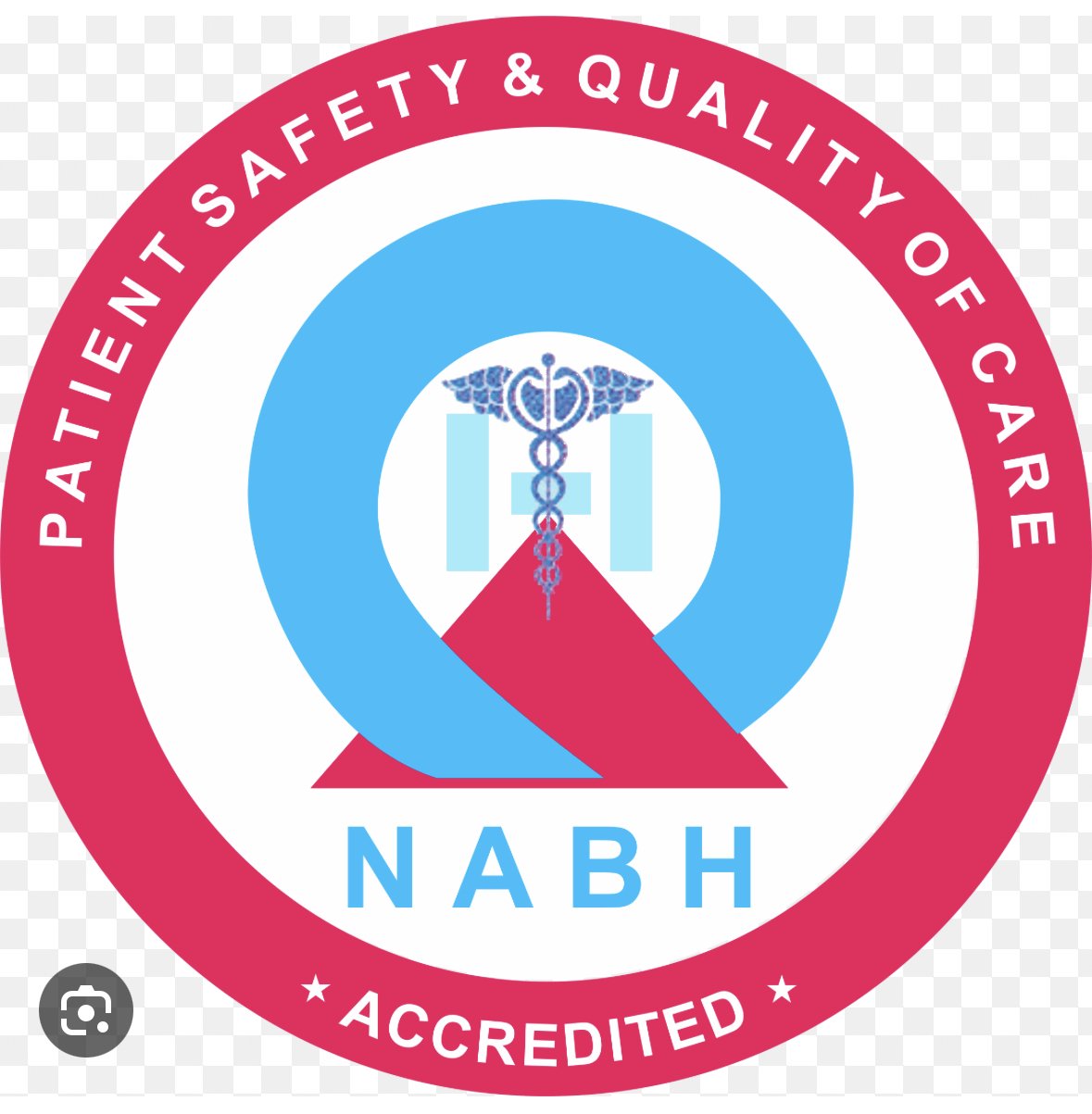
Reading Time: 3 minutes
Understanding NABH & role for Advancing Healthcare Quality and Patient Care
In the pursuit of ensuring quality healthcare services and patient safety, the National Accreditation Board for Hospitals and Healthcare Providers (NABH) plays a pivotal role in India.
Established with the aim of improving healthcare standards, NABH has become a beacon of excellence in the Indian healthcare industry. In this blog, we will explore the key aspects of NABH, its constitutional status, governing body, establishment, goals, responsibilities, advantages to hospitals, impact on patient care outcomes, and the quality status it brings to medical facilities.
- What is NABH?
The National Accreditation Board for Hospitals and Healthcare Providers (NABH) is an autonomous body under the Quality Council of India (QCI). It was established to establish and operate an accreditation program for healthcare organizations in India. NABH provides accreditation to various healthcare facilities, including hospitals, nursing homes, blood banks, and primary care centers, based on stringent quality and patient safety standards.
- Constitutional Status:
NABH operates as an autonomous body under the Quality Council of India (QCI), which is an organization set up by the Government of India to establish and operate the National Accreditation Scheme (NABCB) and the NABH, among others. NABH’s autonomous status ensures impartiality and credibility in its accreditation processes.
- Governing Body:
NABH operates under the guidance of its Governing Council, which consists of eminent experts from the healthcare industry, government, and other stakeholders. This council oversees the formulation of policies and the functioning of NABH, ensuring that the highest standards of quality and patient safety are maintained.
- Establishment and Goals:
NABH was established in 2006 with the primary goal of improving the quality of healthcare services in India.
Its objectives include setting benchmarks for healthcare organizations, promoting continuous quality improvement, and enhancing patient safety.
By accrediting healthcare facilities, NABH aims to instill trust and confidence in patients and stakeholders, fostering a culture of quality and accountability.
- Responsibility of NABH:
NABH is responsible for developing and implementing accreditation standards for healthcare organizations.
It assesses healthcare facilities based on these standards and awards accreditation to those that meet the required criteria.
The board also conducts periodic evaluations to ensure that accredited organizations continue to adhere to the prescribed quality benchmarks.
- Advantages to Hospitals and Medical Facilities after NABH Accreditation:
Hospitals and medical facilities that obtain NABH accreditation gain several advantages:
a) Enhanced Reputation and Trust:
NABH accreditation is a testament to the facility’s commitment to high-quality healthcare services and patient safety.
It enhances the reputation of the organization, instilling trust in patients and stakeholders.
b) Improved Patient Care:
NABH accreditation promotes a culture of continuous quality improvement, leading to better patient care outcomes.
Accredited facilities follow evidence-based practices, ensuring the highest standards of medical care.
c) Operational Efficiency:
NABH accreditation encourages the adoption of efficient processes and workflows, leading to streamlined operations and resource utilization.
d) Competitive Edge:
NABH-accredited hospitals gain a competitive advantage in the healthcare market, attracting more patients and medical professionals.
e) Legal and Regulatory Compliance: Accreditation demonstrates compliance with national and international healthcare standards, meeting legal and regulatory requirements.
- Validity & Renewal of NABH Accreditation:
NABH accreditation is valid for a specific period, typically two years. During this period, the accredited facility undergoes periodic surveillance assessments to ensure adherence to quality standards.
After the validity period, the facility must undergo a re-assessment for renewal of accreditation.
- Fee of NABH Accreditation:
The fee for NABH accreditation varies based on the size and type of the healthcare facility. The fees cover the assessment costs, training, and other administrative expenses involved in the accreditation process.
However, according to the NABH website, the application fee for hospitals seeking NABH accreditation ranges from Rs. 50,000 to Rs. 2,50,000 depending on the bed strength of the hospital.
The assessment fee charged by NABH ranges from Rs. 1,50,000 to Rs. 6,00,000 depending on the bed strength of the hospital and the type of accreditation sought.
- Impact of NABH Accreditation on Indian Healthcare Facilities and Patient Care Outcomes:
The impact of NABH accreditation on Indian healthcare facilities and patient care outcomes has been significant.
Accredited facilities have reported improvements in patient satisfaction, reduced medical errors, and better clinical outcomes.
The emphasis on continuous quality improvement has led to the implementation of best practices and the incorporation of patient feedback into service delivery.
Moreover, NABH accreditation has helped in standardizing healthcare processes across the country, contributing to an overall enhancement of the quality of healthcare services.
NABH accreditation signifies that a healthcare facility adheres to the highest quality and patient safety standards. It certifies that the facility has implemented best practices, has qualified and trained staff, follows evidence-based medical protocols, and provides a safe and hygienic environment for patients.
Conclusion:
NABH has emerged as a critical driver of healthcare quality and patient safety in India. Through its rigorous accreditation process, it empowers healthcare facilities to achieve excellence in patient care.
Accreditation not only enhances the reputation of hospitals but also leads to improved patient care outcomes.
With NABH setting benchmarks and encouraging continuous quality improvement, the Indian healthcare industry is moving towards a future of enhanced quality and patient-centric care.

2 Comments
Pretty! This has been a really wonderful post. Many thanks for providing this information.
Excellent beat ! I would like to apprentice while you amend your website, how can i subscribe for a blog web site? The account helped me a acceptable deal. I had been tiny bit acquainted of this your broadcast offered bright clear idea